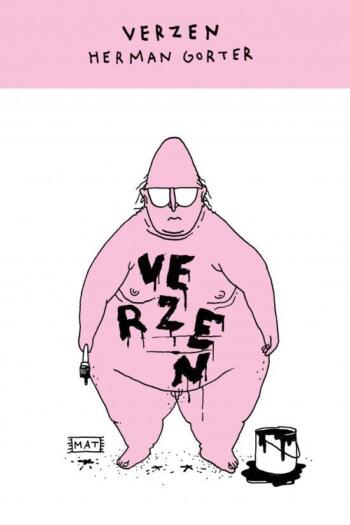-
Vorige
Max Havelaar
Multatuli
1860 -
Volgende
Rijmsnoer om en om het jaar (Rhyme Cord Around and Around the Year)
Guido Gezelle
1897
The collection Verses was to be the expression of Gorter’s “own sensual and immediate feeling”. Lodewijk van Deyssel found the poems especially “sensitive”. In a letter to the Dutch writer, Gorter wrote: “If your books are days, the days of the deeds, of the course of life, these verses are the moments, the separate moments, in those days”. And Willem Kloos, Gorter’s other famous contemporary, received a letter telling him: “Listen, old man, you who started it, you old sound god, you must not think that I’m forgetting the commandments. Before I write, I wait until it sounds in my ears, and if I stop, it’s because my ears are done. Have faith in that if you see me doing odd things. I never do it any differently”.
As a student of classical languages (who would go on to gain a doctorate), Gorter had a negative experience with literary transmission:
Ik zat toen heel stil te werken,
de boeken waren als zerken
voor me, ik wist wel wat
elk graf in zich had.
(I was working very quietly then
the books like tombstones
to me, I certainly knew
what was in each grave.)
To breathe some life into the dead languages, he would allow the sensory stimuli to resonate in his unconscious, as though he were a surrealist avant la lettre:
Ik zat eens heel alleen te spelen
op een gedachteharp, de kelen
van schemering en duisternis om mij
fluisterden liedjes, het leek toverij.
(I was alone plucking
a thought harp, the throats
of dusk and darkness around me
whispering songs, it seemed like magic.)
This “word magic” led Willem Kloos to call poetry a proto-language: “art is the most individual expression of the most individual emotion”.
The price that Gorter had to pay for this was the lability of his own emotional life, “a laughing or a crying start”. It is unsurprising that one of his most impressive poems (“In the dark night, a person appears”) is about the suicide by drowning of the singer Anna Witsen. In Gorter’s hands, this becomes a cosmic event:
en de wind en de wolken hebben stil gestaan,
ze hadden het niet gedacht,
(…)
en de vaders en de voorouders
(…)
en de kinderen die ze had willen baren,
kwamen rondom
tegen de bomen staan, ze waren
klein en stom
(And the wind and the clouds stood still,
They had not thought of it,
(…)
and the fathers and the forefathers
(…)
and the children she wanted to have,
gathered to stand
against the trees, they were
small and stupid)
Gorter later described how the Verses were conceived as follows: “When I think about it now, I was going about for a year with a light head and strange eyes. My health suffered greatly”.
The poet is frequently aware of the impotence of language, something that crops up most often in the love poems:
Ik wilde ik kon u iets geven
tot troost diep in uw leven,
maar ik heb woorden alleen,
namen, en dingen geen.
(I wanted to give you something
some deep solace in your life,
but I only have words,
names, and not things.)
The reason: “I was a poor boy then / with desires too great”. But also: language is not up to the task of reflecting a unique experience.
In order to reproduce the “immediacy” of life of which he was so enamoured, Gorter pushed the boundaries of what was considered possible in poetry and even language at that time. Versification, sentence structure and word formation were all bent to his will. It is, therefore, unsurprising that later generations who sought to radically change poetry saw in Gorter a pioneer. When Paul Rodenko presented the new poets of the avant-garde in 1954, he gave his anthology Nieuwe griffels schone leien (New Pencils, Clean Slates) the subtitle: “from Gorter to Lucebert, from Gezelle to Hugo Claus”.






